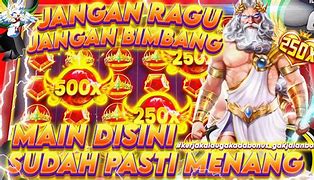Popular Albums by Gad the Screamer
1.5K Views PremiumAug 19, 2023
Didn't find what you were looking for?
Let us notify you once it becomes available on more services.
Akudaya is a Yoruba term which refers to spirit of people that are confirmed dead in one place but go to live elsewhere. It can be roughly interpreted in English as “living Wraith”. It’s a core Yoruba belief and many tales are told of people that die in one area and go and start another life elsewhere.
The word “wraith” means an apparition or double of a living person or a ghostlike image of someone, especially one seen shortly before or after their death. It’s a popular belief in Britain, and some other parts of Europe. Wraiths are believed to be an omen of death. The wraith closely resembles its prototype in the flesh, even to details of dress. There are accounts of people seeing their own wraith, and among those who were warned of approaching death in this way are said to be Queen Elizabeth I, the poet Percy Bysshe Shelley, and Catherine of Russia. Catherine of Russia was said to have seen her double seated upon the throne, Catherine ordered her guards to fire upon it.
The wraith is slightly different from the Akudaya in the sense that they seem to just appear at certain times and go away. The Akudaya in the Yoruba parlance is believed to stay and live a full life and sometimes they’re even said to have children. (I know this can be scary, who do we know we’re relating with that’s dead and buried somewhere?).
Another term used similar to the Akudaya is dopplegänger, dopplegänger is a German word that means “double walker”. A dopplegänger is a non-biological look alike of a person, sometimes not even from the same country. Dopplegänger differs from the Akudaya and the Wraith as they are living beings that just look exactly like a person.
Though in times past they were also believed to be bad omen. For example, Izaak Walton claimed that English metaphysical poet John Donne saw his wife’s doppelgänger in 1617 in Paris, on the same night as the stillbirth of their daughter.
The term “twin stranger” is used in more recent times to refer to dopplegängers. No spiritual undertone is being attached to dopplegängers now and they’re even sites where you can upload your picture and look for your dopplegänger. Everybody is said to have one, not everyone though is opportuned to meet theirs’.
Back to the Akudaya, there is a famous tale is told among the Yorubas. It’s of a man that died at quite a young age and was buried by his family somewhere close to the family house. The man though didn’t “RIP” as people believed. He went to a far away town and started a new life(ironic I know) even though he was already dead. He got married and had children. After a while his wife started pressing to meet his family, the Akudaya kept postponing and dodging.
Then one day he couldn’t anymore, he took his wife to his parent’s house but just before they got there he said he had to get something and was going to join her, he directed her to the house. His wife got to the house and met the Akudaya’s mother. The mother couldn’t believe what she was hearing, she took the wife to where her son had been buried years ago. The Akudaya was said to never be seen again. Whether he went on to live another life elsewhere or finally rested no one knows.
This story isn’t documented in writing and is only passed down through verbal communication, hence there can be some loss of details or some add-ons along the way. So incase you’ve heard this particular Akudaya tale before and it doesn’t sound exactly like this. Well, this is the version that got to me.
Vintage Yoruba Proverbs (Òwe Ilẹ̀ Yorúbá) Vol.3
Offenbar hast du diese Funktion zu schnell genutzt. Du wurdest vorübergehend von der Nutzung dieser Funktion blockiert.



